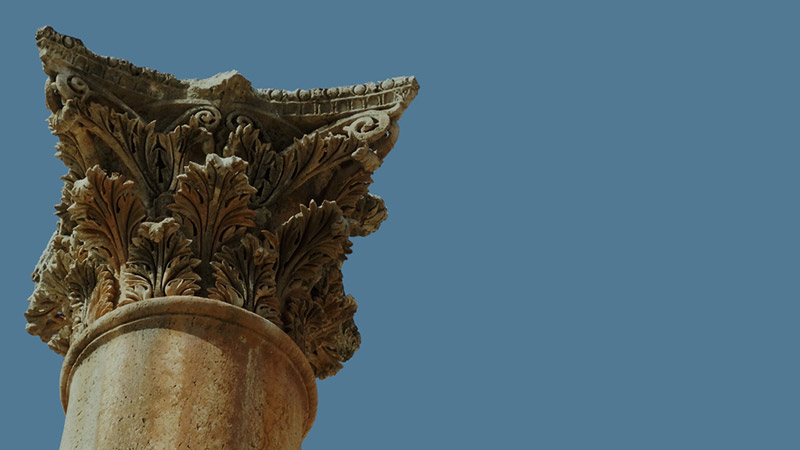More Results
Showing 12 of 67
Articles

Fertility Cults of Canaan
Fertility Cults of CanaanOnly recently have scholars begun to unravel the complex religious rituals of Israel's Canaanite neighbors. Much of our knowledge of the origins and character of these fertility cults remains tentative and widely debated. ...
MORE
From Galilee to Asia
From Galilee to AsiaThe remains of the towns and villages of Galilee give evidence to the simple lifestyle of the Jewish people of the first century. Few were wealthy or poor. Most were hardworking people living comfortable lives as extended famil...
MORE
Herod's Family
Herod's FamilyHerod lay dying in his opulent palace in Jericho. He had been seriously ill for a long time. From the description in Josephus' writings, Herod had gangrene, severe itching, convulsions, and ulcers. His feet were covered with tumors, ...
MOREEncyclopedia

Gates of Hell
City of PagansCaesarea Philippi, which stood in a lush area near the foot of Mount Hermon, was a city dominated by immoral activities and pagan worship.Caesarea Philippi stood only twenty-five miles from the religious communities of Galilee. But t...
MORE
Gates of Hell
Hades, originally the Greek god of the underworld, is the namesake for the place where departed spirits live. It was frequently used in the Bible as a synonym for hell or the grave (Psalm 9:17; 55:15; 116:3).As Jesus used it in Matthew 16:18, Hade...
MORE
Herod the Builder
The Works of a Master BuilderHerod the Great's visionary building programs, ingenious development of trade with other countries, and advancement of his nation's interests were remarkable. He used his magnificent building projects to strengthen his...
MORE
Herod's Arena
The remains of a great arena (or hippodrome-meaning "horse track") are emerging from the sand dunes of the Mediterranean shore. The stone seats show the beginning of the curve of the southern end of the stadium. The Mediterranean Sea has...
MORE
Herod's Legacy
Herod the Great had tremendous wealth and influence in his day. He controlled major trade routes and constructed buildings and cities that showcased his power. Despite the glory he enjoyed in life, the buildings Herod built for himself now lie in ...
MORE
Herod's Masada
Herod built the fortress-palace of Masada on a huge rock plateau overlooking the Dead Sea in the barren, remote, Judea Wilderness.Protection The top of the plateau, being more than twenty acres in size and nearly 1,300 feet above sea level, provid...
MORE
Herod's Palace
Only recently have these scattered remains been identified as Herod's palace. In the center was a freshwater pool now largely filled with silt and stones from the building itself. In the center is the podium believed to be the base for a large sta...
MOREGlossary

Hippodrome Definition
Greek, hippus ("horse") and dramas ("course"). Referred to a horse racing course or circus. Herod built hippodromes in Caesarea, Jericho, and Jerusalem, where horse races, chariot races, and Olympic-style games were held as par...
MORE


















